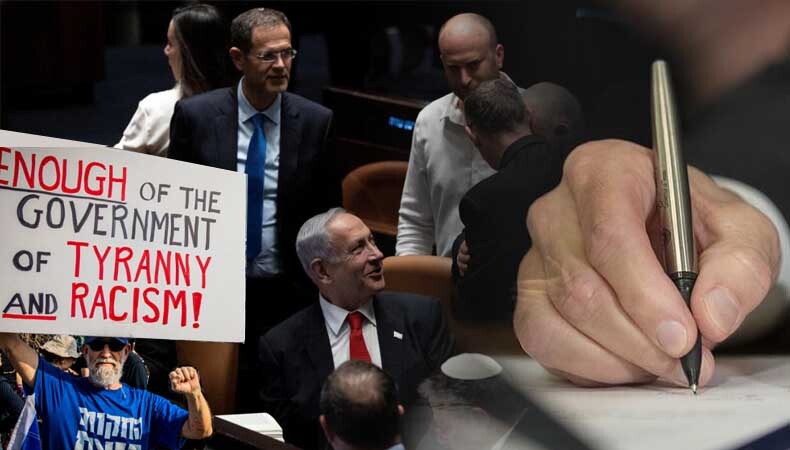Bill for judicial reform receives initial support from Israel’s parliament

Despite nationwide protests against a measure that opponents saw as a threat to democracy, the Israeli parliament supported an important component of a contentious judicial reform on Tuesday during its first reading.
By a vote of 63 to 47, lawmakers decide not to allow courts to rule on legislation they perceive to be in conflict with Israel’s quasi-constitution, the so-called Basic Laws, and to give the government more influence over the committee that chooses judges.
On Monday, tens of thousands of people demonstrated against the expected vote on the streets of Jerusalem. Using “shame” cries, opposition members inside the legislature temporarily distanced themselves from the discussion.
Prior to its second and third readings in the plenum, where it must pass to become law, the bill will now be sent back to the law committee for additional discussion.
After the measure passed its first reading, Justice Minister Yariv Levin remarked that “the court will now belong to everyone” and invited opponents to “come and chat.”
We can get to agreements, Levin remarked.
If the coalition truly cared about Israel and its citizens, they would “stop legislation now,” according to opposition leader Yair Lapid.
Without success, President Isaac Herzog has attempted to bring the parties together for negotiations on the reform.
Read | Three dead and over 200 injured as new earthquake hits Turkey
A pillar of Prime Minister Benjamin Netanyahu’s cabinet, an alliance of ultra-Orthodox and extreme-right parties that gained power in late December, is the comprehensive judiciary reform.
Another component of it would grant the 120-member parliament the authority to overturn Supreme Court rulings with a simple majority of 61 votes.
The prime minister argues that judges currently have too much authority over elected politicians and that the reform is essential to reestablishing balance between the three parts of government.
Tens of thousands of people have joined weekly protests against the legislation since early January as critics accuse the administration of a power grab.




